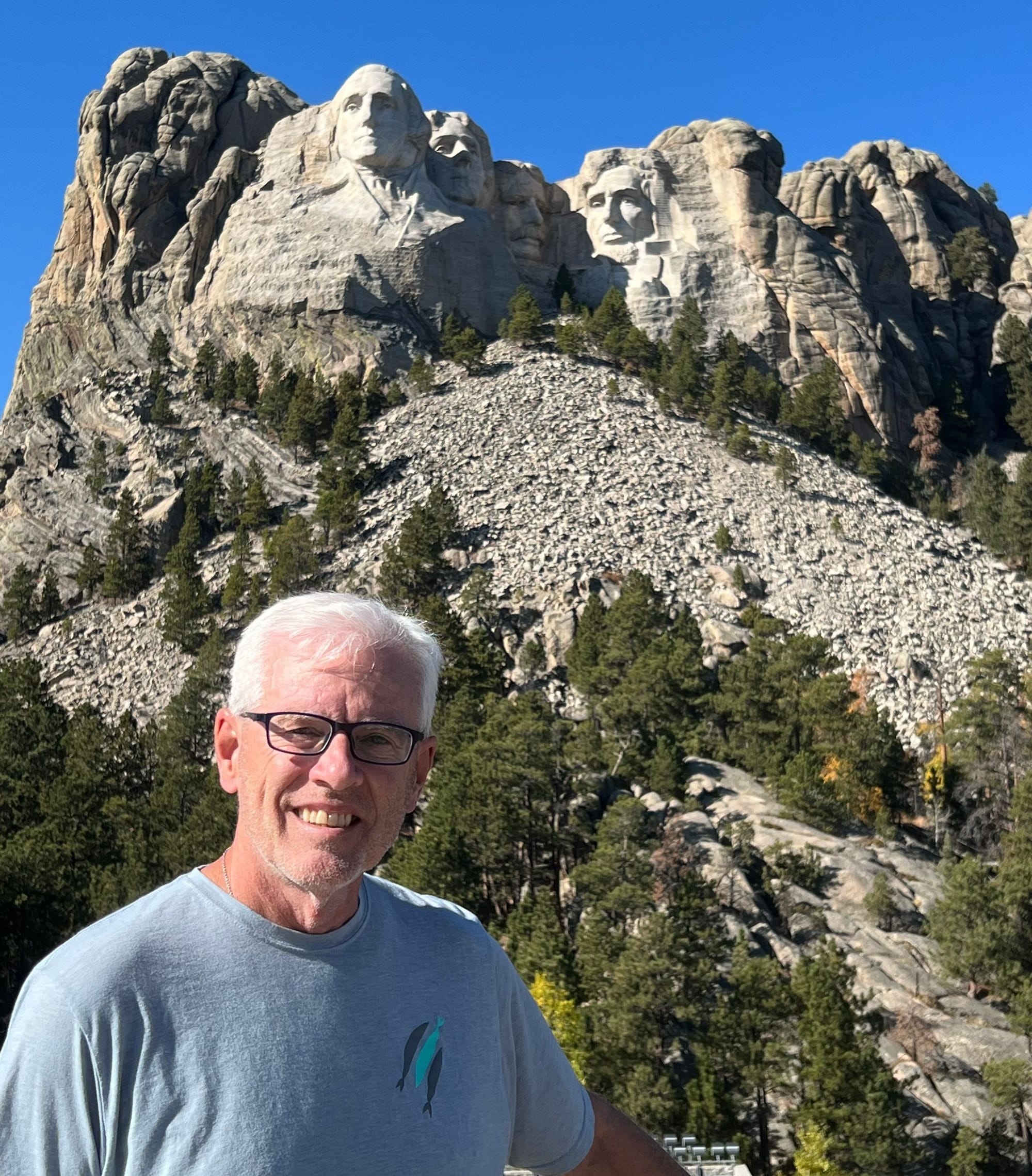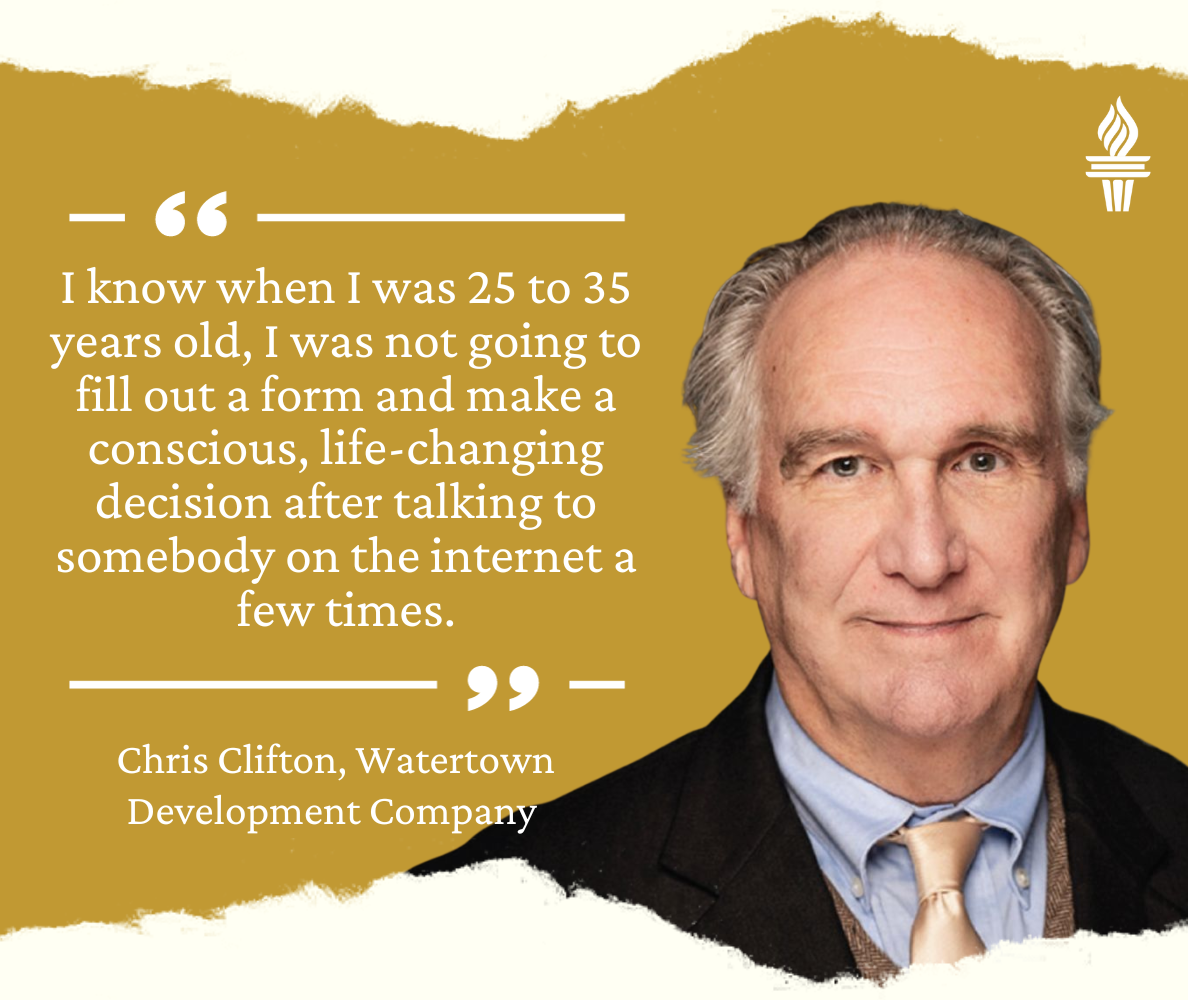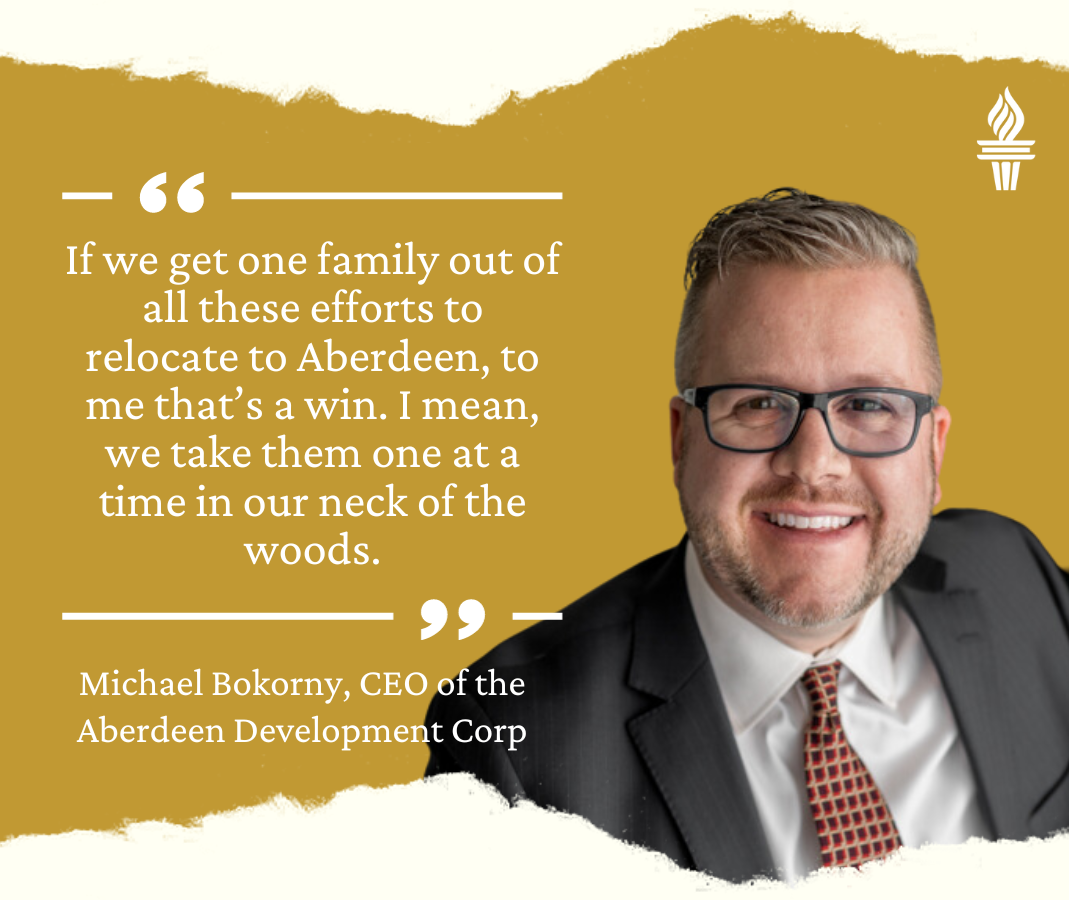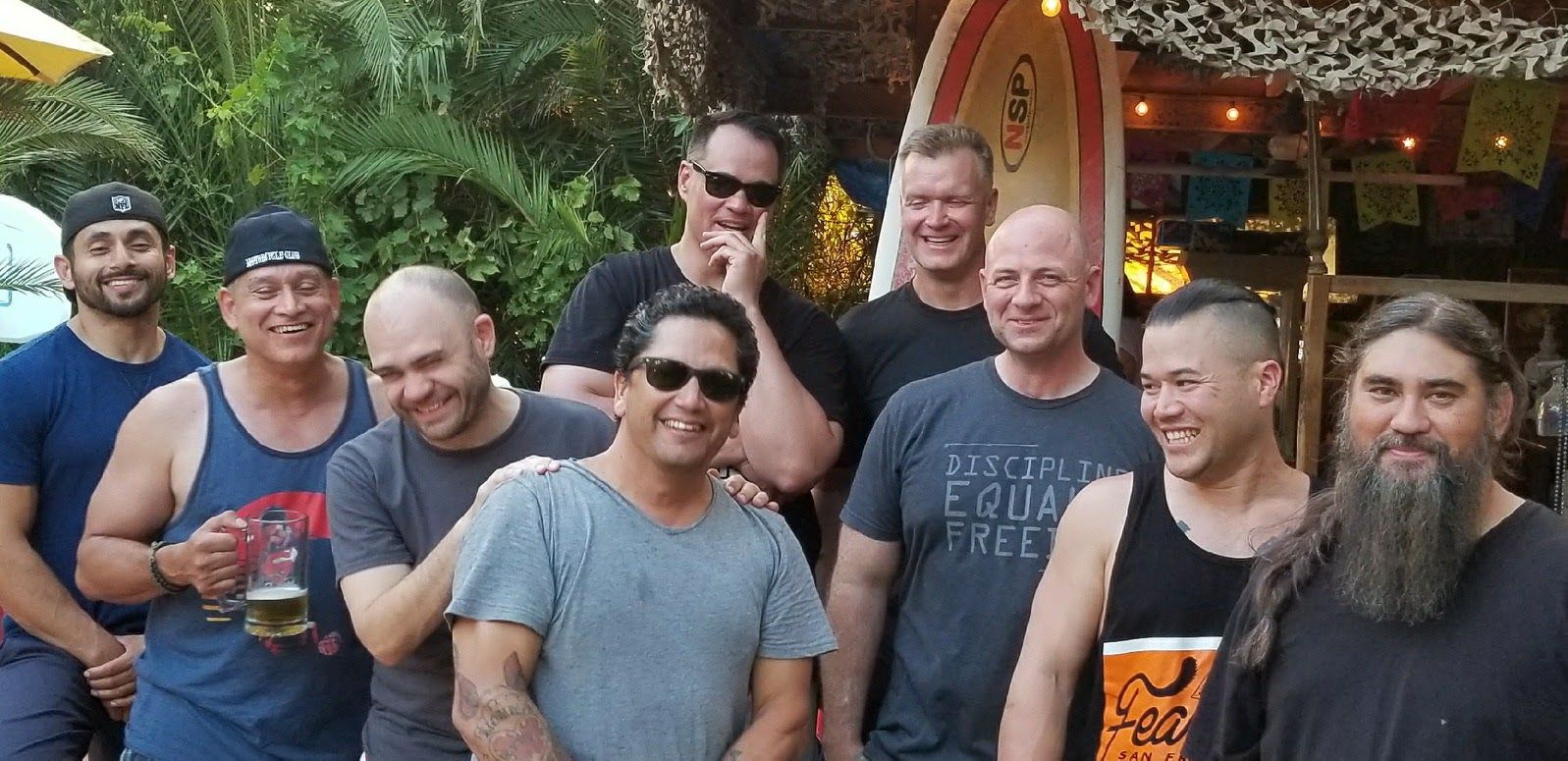Stu Whitney

Stu Whitney
SIOUX FALLS, S.D. – Bob Douglas, touted as a success story of Gov. Kristi Noem’s “Freedom Works Here” workforce recruitment campaign in South Dakota, confirmed a few things during a recent interview with News Watch.
The 66-year-old recreational vehicle salesman does enjoy freedom, it turns out. And he loves South Dakota. He plans to move to the Sioux Falls area once he sells his house in southern California, maybe as early as next spring. Douglas was referenced in a Sept. 21 press release from the governor’s office as having “recently moved to South Dakota.”
As for being heralded by the governor’s staff as an example of Noem’s $6.5 million ad campaign drawing new residents to the Mount Rushmore State, well, that’s not exactly true either.
“I wasn’t really aware of the campaign,” said Douglas, whose experience in the RV industry led to him being hired by Parkston-based Trailmanor as a West Coast representative in 2022. He was then named the company’s national sales and marketing director in April 2023, several months before the Governor’s Office of Economic Development (GOED) launched the Freedom Works Here effort.

Douglas told News Watch that politics played a role in his decision to take the Trailmanor job. He called Noem a “rock star” and added that his community of Tehachapi, about 100 miles from Los Angeles, holds rallies supporting former President Donald Trump that he and his wife, Jennifer, attend.
“Once you get out into the valley and mountains and away from the big cities, you’ll find a whole lot of people that think the way that my wife and I think,” said Douglas.
Finding younger workers a challenge in South Dakota
For economic development corporations and businesses in South Dakota, many of which contributed $10,000 to help fund the Freedom Works Here campaign, Douglas’ story is an oversimplification of workforce recruitment.
Politically motivated individuals, many of them at or near retirement age, have helped boost South Dakota’s population by seeking more lenient tax structures or escaping what they perceived as heavy-handed COVID-era policies in Democratic-controlled states such as Minnesota, California and Colorado.
Net migration between July 1, 2021, and July 1, 2022, was one of the main reasons South Dakota ranked fifth in percentage of population growth (1.5%) among U.S. states during that span, according to the U.S. Census Bureau.
For South Dakota businesses, however, skilled workers between the ages of 25 and 35 are the “sweet spot” they would like to attract as the state’s unemployment rate hovers at 1.9%, with about 20,000 open jobs. The process of trying to persuade younger workers to take a job in South Dakota is a painstaking process that goes beyond political platitudes, said Watertown Development Co. executive director Chris Clifton.
“I know when I was 25 to 35 years old, I was not going to fill out a form and make a conscious, life-changing decision after talking to somebody on the internet a few times,” said Clifton. “If you look at the content of ‘Freedom Works Here,’ I mean, you’re kind of celebrating motherhood, apple pie and Chevrolet, so to speak. For a lot of people it’s like, how can you be against it? But there’s a lot of decision-making that goes into the process.”
‘We’re in uncharted territory here’
Economic development corporations and some major employers were solicited for contributions by the Governor’s Office of Economic Development in August to help extend a national run of Noem’s TV and social media commercials. That helped fund a $1.5 million “phase two” of advertisements that GOED said will roll out soon.

The commercials so far have shown Noem acting as plumber, electrician, welder and dentist to illustrate the need for more workers in South Dakota. The governor’s office said that the ads have “been viewed over 800 million times,” but GOED officials declined to share with News Watch the specific methodology or data used to arrive at that number.
“This is a combination of impressions – that is actual views – on both the TV ads and the digital ads,” Sarah Ebeling, GOED’s communications coordinator, wrote in an emailed response to requests for more information.
At a Nov. 13 meeting in Pierre, members of the Legislature’s Appropriations Committee pointed to the lack of hard data connecting new residents to the Freedom Works Here campaign, as opposed to those who made the decision for other reasons.

The legislative oversight is focused on more than $5 million in Future Fund dollars used to enlist the marketing and distribution services of Ohio-based Strategic Media Services and Tennessee-based Designsensory Inc. as part of the GOED initiative.
Economic development officials interviewed by News Watch said they are concerned about getting their money’s worth. As part of their investment, they received raw data of respondents who signed up or provided information through the Freedom Works Here website, a total of about 7,500 names and email addresses.
Noem’s office and GOED claim that more than 1,800 applicants “are in the final stages” of moving to South Dakota. Ebeling told News Watch that number is based on how many people created an account on the South Dakota Works website through the Department of Labor and Regulation to explore employment options in the state. It’s not clear how many will actually relocate.
“This campaign started June 21, 2023,” Ebeling wrote in her response. “Five months is a fairly short turnaround time to pick up your life and move to a different state.”
Economic development officials are sorting through data they received from GOED, trying to gauge which respondents to the Freedom Works Here campaign have serious interest in moving to South Dakota.
“We have not had anyone relocate yet, but I would qualify that to say that I didn’t expect it would happen this quickly,” said Michael Bokorny, CEO of the Aberdeen Development Corp. “We’re in uncharted territory here. There’s not really a technical manual on how to do this. We’re kind of making it up as we go.”
Concerns raised about compiling Freedom Works Here data
Several development officials said more work could have been done by GOED and the Department of Labor to filter data on the front end, such as itemizing by preference of community or profession. They also expressed surprise that they were asked to contribute to a campaign that they weren’t consulted on ahead of time and didn’t know much about until it launched.
“Before I made my way through the data, I wanted to know exactly what the Department of Labor did or what filtration they used,” said Clifton. “I got a bunch of gobbledygook that basically said, ‘We can’t tell you what we did, but we did all we could do.’ I’m a little suspicious about that because I’ve been involved in a lot of marketing campaigns that were very specific about impressions. There’s going to be a lot of heavy lifting on the back end to get this into a net result of who actually makes the move and takes a job.”
Elevate Rapid City, which supports economic development in the Black Hills region, encountered problems with names and contact information being duplicated in the data. There was also no record of who had already been contacted and what those conversations entailed, pointing to the competitive nature of different communities promoting their job prospects and quality of life.
More statewide coordination could have helped alleviate those problems, said Tom Johnson, Elevate Rapid City’s president and CEO.
“I’m guessing a lot of folks on this list have been contacted in one form or another by more than a dozen groups and businesses in South Dakota,” Johnson told News Watch. “I could see that becoming overwhelming. We’ve had numerous people on the list who have interpreted these contacts from all the communities as spam, which impacts the effectiveness of the outreach. It’s every community and business for themselves, with multiple entities who paid into the program trying to make the most of the names that were given.”
‘We take them one at a time’
Each community took its own approach to curating the data and chasing down leads. Beyond the initial names and addresses, there is a significant amount of follow-up recruitment – what several officials called “handholding” – necessary to persuade someone to uproot their life and move to another state.
The Aberdeen Development Corp. contacted all 7,500 names on the list through email and social media, whittling the group down to about 140 who might be interested in moving to northeast South Dakota.
“I’m surprised we got 140 people interested,” Bokorny said. “I did not think we would get that because this is kind of a crap shoot, and there’s a lot of work still to do. We also had to further qualify those 140 names by asking ourselves, ‘Are we a good fit for these people? Do they make sense for us as well?’”
Bokorny and his staff worked with partners such as the city of Aberdeen, Northern State University and the local YMCA to put together a package of $5,000 worth of incentives for prospective employees and families who choose to relocate to Aberdeen.
As of mid-November, Bokorny said three individuals had agreed to visit the area to see if moving there makes sense for them, including an optometrist from a “blue state” who reached out primarily for political reasons tied to what his kids were being taught in school.
“If we get one family out of all these efforts to relocate to Aberdeen, to me that’s a win,” Bokorny said. “I mean, we take them one at a time in our neck of the woods.”
Strategies vary for recruiting workers
Tim Reed serves as a Republican state senator from Brookings and CEO of the community’s economic development group. He said he and other local officials were taken back when GOED director Chris Schilken requested money to extend the national ad campaign.

“It was a surprise, and it had to be weighed out whether each of our organizations thought it was worth the money,” Reed said. “In the end my board said basically, ‘Let’s do it,’ but there was some caution to it.”
Upon receiving the data, Reed and his staff sent a mass email to all 7,500 names, directing them to a local job board to find more information about employment options in the Brookings area.
“We had very good open rates,” said Reed, referencing the percentage of people who opened the email rather than ignoring it. “And we know that some of those people have clicked through to our job board. But it’s going to take a while. No one is going to move here in 30 days, right? We know that they’ve gone on a website and said they’re interested, but that’s all we know. Where are they? Are they really ready to move? These are things we need to find out.”

Elevate Rapid City took a similar approach and has seen encouraging response rates. Johnson said that 79 people applied for openings on the Black Hills job board, 66 signed up as job seekers on the Elevate Rapid City website and 30 resumes have been added to the job bank. His staff has conducted seven face-to-face meetings over Zoom.
“We were encouraged (by state officials) to send out emails about our communities and, if able, do a direct mail afterwards, which would be incredibly cost prohibitive,” Johnson said. “Aside from that, the ball was mostly in our court to do what we felt was best for our community.”
As for how many people he expected to relocate to Rapid City for employment, Johnson said: “It’s anyone’s guess. There’s a saying that cash ain’t cash until you collect. The same thing is true here. It’s not going to be real until someone has been hired and relocated here and working for one of our great businesses.”

‘I was looking for a change’
People like Bob Douglas, the RV salesman who plans to move to South Dakota from California, don’t need a lot of persuading. South Dakota was in their sights because of Noem’s doctrine of limited government, whether that means lower taxes or fewer restrictions during a public health emergency.
South Dakota ranked third behind New Hampshire and Florida for policies impacting economic, social and personal freedoms in 2022, according to the Cato Institute, a Libertarian-leaning think tank, which factored COVID-19 responses into its formula.
Those principles resonated with Chad Armstrong, a 49-year-old U.S. Marine veteran and “hardcore conservative” who moved to Rapid City from Butte, Montana, in October with his wife, Natashja. Armstrong chose South Dakota over Missouri and Texas partly because of Noem’s messaging as well as his connection to Bradley Cummings, a veterans employment representative with the Department of Labor.
“I was looking for a change in the way that states regulate themselves,” said Armstrong, who started in November as a substitute fourth-grade teacher at General Beadle Elementary in Rapid City. “I was looking for a place that isn’t under the government welfare system and a place where you can keep your money.”
Armstrong is considering pursuing an online doctorate degree from Liberty University in public policy and Chinese affairs, following up a master’s degree in cybersecurity from Southern New Hampshire University. He also said he might run for school board or sheriff.
Armstrong founded a nonprofit, the Forgotten Fifteen Foundation, with fellow Marines he served with during the 2006 Battle of Ramadi in the Iraq War. The goal is to provide support for veterans who are struggling to make the transition from military to civilian life.
Noem’s office said in a press release that the nonprofit would be headquartered in South Dakota, but the organization listed no revenue or expenses on its 2022 disclosure form.
“My dream would be to build a Forgotten Fifteen compound and the front of it would look just like the entrance to Mount Rushmore,” said Armstrong.
Asked if it would be built in South Dakota, he said it was more likely to be built in the state where most of his fellow Marines currently reside.
“That would be California,” he said.
